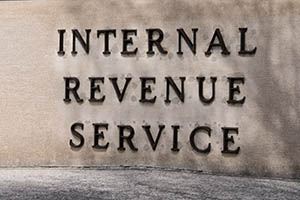Even people with no banking experience and no personal experience with the Swiss banking system are generally aware of the reputation of that system when it comes to providing a way to hide money. The federal government is also well aware of this reputation, and has taken measures to make it less attractive to people seeking to avoid paying taxes. A recent news story suggests that despite these countermeasures, some people are still using Swiss banks as a tax shelter of dubious legality.
Federal laws that seek to discourage hiding money overseas as a tax evasion technique can subject not only the overseas bank customers but the bankers themselves to criminal legal liability. In the story at hand, two of eight former employees of a Swiss bank that was itself convicted of helping U.S. taxpayers illegally avoid more than $2 billion in tax obligations pled guilty in federal court for their involvement in that activity.
Both men could have been sentenced to prison terms of four years or more, but the court accepted the recommendation of the prosecution to impose monetary penalties and probation instead. Possible reasons for the leniency were that both defendants chose to come to the U.S. voluntarily, and at least one of the two men had in recent years been advising his U.S. clients to make use of IRS amnesty offers, which resulted in tens of millions of dollars of back taxes being paid by those clients.
The scale of the use of Swiss and other foreign bank accounts to evade taxes can be understood from the fact that since 2009 about 45,000 U.S. taxpayers, including, almost certainly, some in New Jersey, have taken advantage of IRS tax amnesty programs to pay more than $6 billion in back taxes and related penalties.
Avoiding taxes by legal means is understandable, but evading taxes is something that the federal and state governments take seriously. Before sending money to overseas accounts, even if they claim to be tax shelters, seek the advice of an accountant and a tax lawyer to make sure that the arrangement is legitimate. And if you have been accused of tax evasion in connection with such an overseas arrangement, retaining a criminal defense law firm experienced with tax cases can make the difference between keeping your freedom or going to federal prison.
Source: New Jersey Herald, ” Swiss bankers avoid prison, get probation instead,” Matthew Barakat, March 27, 2015


Leave A Comment